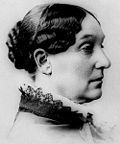- Kicker (Oregon tax rebate)
-
The Oregon tax rebate, commonly referred to as the kicker, is a rebate given to both individual and corporate taxpayers in the U.S. state of Oregon when a revenue surplus exists. The Oregon Constitution mandates that the rebate be issued when the calculated revenue for a given biennium exceeds the forecast revenue by at least two percent.[1] The law was first passed by ballot measure in 1980, and was entered into the Oregon Constitution with the passage of Ballot Measure 86 in 2000.
The Oregon Department of Revenue distributes the rebate in what is known to Oregonians as a kicker check.[1] The kicker, which prevents surpluses above a certain size, is a complement to the balanced budget amendment, which prevents deficits.
In 2007, the average kicker refund for personal incomes was $263, while the median refund was $113. The wealthiest one percent of Oregon taxpayers received one-fifth of the refund.[2] This distribution is explained by the fact that Oregon has five state income tax brackets, from five to eleven percent, which put most of the income tax burden on high-income earners.[3]
That same year, eighty-six percent of the corporate refund went to multistate corporations, and four percent of the total number of corporations received ninety-three percent of the corporate refund.[4]
History
Rising concerns over property taxes and inflation in the 1970s urged lawmakers all over the country to draft tax cut plans; notably California's Proposition 13,[5] which inspired the Oregon legislature to draft their own bill aimed at limiting what was perceived as excessive growth. Their 1979 tax relief package aimed to stem rising property taxes, reduce individual taxpayer burden, and limit spending from the state's general fund. Under the bill, property owners received a 30-percent reduction in property taxes, and the state would be required to rebate "excessive" surplus to the taxpayers.[5]
The kicker law was overwhelmingly approved by voters in 1980, but the first kicker rebate didn't occur until 1985 when the calculated revenue exceeded the forecast revenue by 7.7 percent ($88.7 million).[6] The kicker was triggered again in 1987 (16.6%, $224.2 million) and 1989 (9.8%, $175.2 million).
In 1991 and 1993, budget problems relating to Ballot Measure 5 of 1990 prompted lawmakers to suspend the kicker, withholding $246 million from taxpayers.[6]
Throughout the 1990s and 2000s, rebates have occurred five more times; 1995 (6.27%, $162.8 million), 1997 (14.37%, $431.5 million), 1999 (4.57%, $167.3 million), 2001 (6.02%, 253.6 million), and 2007 (18.6%, $1,071.2 million).[7][8]
In 1999, Measure 86 was drafted and referred to voters. This measure, which was passed with 62% approval, placed the kicker law into the Oregon Constitution. Also as a result of the measure, an emergency vote must be called to cancel the distribution of kicker checks.[9]
Opponents of the kicker law claim it prevents Oregon from retaining an appreciable economic surplus.[10] Without an ample surplus, the state is more vulnerable to the effects of recession, such as in 2003 as when police forces were cut, schools were downsized, and healthcare was restricted.[10] Since the very beginning of the kicker in 1980, legislators have looked to find ways around this. In 2007, lawmakers in Oregon succeeded in diverting funds from the corporate kicker to a surplus account called the rainy day fund.[10] Further movements to eliminate the kicker altogether are underway,[7] backed by lawmakers such as prior Governor Ted Kulongoski.[11]
See also
References
- ^ a b "Common questions about the 2007 kicker". Oregon Department of Revenue. Archived from the original on 2008-02-06. http://web.archive.org/web/20080206205810/http://www.oregon.gov/DOR/PERTAX/faq-kicker.shtml. Retrieved 2008-02-12.
- ^ http://www.ocpp.org/cgi-bin/display.cgi?page=issue060328kick
- ^ http://taxfoundation.org/files/state_individualincome_rates-2000-2011-20110302.pdf
- ^ http://www.ocpp.org/cgi-bin/display.cgi?page=issue060328kick
- ^ a b "Measure 8 - State Spending Limit". Legislative Revenue Office. 2000-09-07. http://www.leg.state.or.us/comm/lro/8-00Measure8.pdf. Retrieved 2008-02-13.
- ^ a b "2% Surplus Refund (Kicker) History". Oregon Department of Revenue. 2002. http://www.oregon.gov/DOR/NEWS/docs/kicker.pdf. Retrieved 2008-02-13.
- ^ a b "The 2007 Kicker: Wrongheaded, Unjust, Costly, and a Federal Tax Increase". 2007-10-26. http://www.ocpp.org/cgi-bin/display.cgi?page=iss071026kicker. Retrieved 2008-02-13.
- ^ "Oregon 2% Surplus Kicker: 2001 update". Legislative Revenue Office. http://www.leg.state.or.us/comm/lro/oregon_surplus.pdf. Retrieved 2008-02-12.
- ^ "The kicker could cost $1 billion". Mail Tribune. 2002-01-03. http://archive.mailtribune.com/archive/2002/january/010302n11.htm. Retrieved 2008-02-12.
- ^ a b c Edwards, Randall (January 26, 2008). "Time is up for personal kicker". Statesman-Journal. http://www.statesmanjournal.com/apps/pbcs.dll/article?AID=/20080126/OPINION/801260306/1049.
- ^ McCall, William (2006-06-02). "Gov. may suspend large tax refund". Daily Vanguard. http://media.www.dailyvanguard.com/media/storage/paper941/news/2006/06/02/News/Gov-May.Suspend.Large.Tax.Refund-2615710.shtml. Retrieved 2008-02-13.
Topics in Oregon legislation Crime and sentencing Capital punishment · Measure 11 (1994) (mandatory minimum sentencing) · Measure 40 (1996) etc. (victims' rights) Abigail Scott Duniway was instrumental in establishing women's right to vote in Oregon.
Abigail Scott Duniway was instrumental in establishing women's right to vote in Oregon.
Elections and voting Gay rights Environment Land use Health care Minimum wage Taxation Tax revolt · Measure 5 (1990) (landmark tax law) · Measures 47 (1996) and 50 (1997) (adjusted Measure 5) · Kicker (tax rebate)Miscellaneous Influential people Background, further reading Categories:- Taxation in Oregon
- Economy of Oregon
Wikimedia Foundation. 2010.
